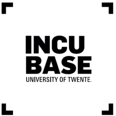As a graduate of the Master’s in Biomedical Engineering with a specialisation in Physiological Signals & Systems, you can look forward to an exciting career as an R&D engineer, researcher or product developer, to name a few examples. Another option is to continue with a PhD- or EngD programme. Or you could become an entrepreneur and start up your own business.
Type of degree
When you have completed this Master's with a specialisation in Physiological Signals & Systems, you will receive a Master’s degree in Biomedical Engineering. Also, you can title yourself Master of Science (MSc). Your specialisation will be mentioned specifically on your diploma supplement, highlighting your specialised knowledge and skills in physiological signals and systems.
Job opportunities
Due to our ageing society, not only the number of patients seeking help for their health problems is increasing, but the health problems they report are also more complex. There’s a great need for biomedical experts that can advance technologies for patient monitoring and personalised treatment both inside and outside the hospital, by exploiting analysis and interpretation of data through both existing and new sensing methods. Your expertise will be highly welcomed in a variety of organisations.
Broadly speaking, you could take on a job at an R&D department within medtech companies, or you could go on to pursue an academic career within universities, by obtaining a PhD, for example, or in university hospitals, or research centres. From developing patient monitoring equipment to assisting surgeons in the operating room, implanting electrodes; a great variety of job opportunities is awaiting you. Graduates of this specialisation went on to fulfil positions such as product developer, application engineer, clinical field manager, r&d scientist, system developer, project manager, and the list continues. Companies like INreda, Movella, Philips, Demcon and many more would be eager to onboard you. Another option is to continue studying to specialise further as a clinical physicist and take on a position in a hospital.
Start a business
At UT, we highly encourage entrepreneurship. This University is the birthplace of a large number of high-tech spin-off companies that market developed technologies. You could use your research or even inventions stemming from your master’s thesis and/or your PhD research to start up your own innovative company as well! UT has been voted the most entrepreneurial university in the Netherlands four times in a row. We have a unique approach of putting scientific knowledge to practical use and turning our expertise and yours into solutions that people and society actually need. As a catalyst for meaningful entrepreneurship, we offer you the Novel-T foundation and their start-up hub Incubase on campus.
Former students have gone before you. For example, IamFluidics was started up by a BME graduate, just like Lipocoat. Will you be next?
Post-master opportunities
Instead of pursuing a professional career right away after obtaining your Master’s degree, you can also opt for a more academically oriented career, by pursuing a PhD or EngD. An EngD programme is more practically oriented, aligned with the direct problem-solving or design needs of the industry, whereas a PhD programme is more focused on research. You can follow both types of programmes at the Twente Graduate School (TGS).
Continue as a researcher: obtain a PhD
A PhD (Doctor of Philosophy) involves spending four years of in-depth studying and researching in a particular area. You can do this within one of our research groups or in one of our structured PhD programmes. An integral part of a PhD is writing your PhD thesis at the end and then presenting and defending your research in public. Obtaining your PhD earns you the title of Doctor (Dr).
Follow a PDEng programme
Other than obtaining a PhD, you can also opt to follow an EngD programme after graduation. Such a programme usually takes two years and is aimed at you becoming a high-level technological designer. Upon successful completion, you will receive a certified diploma and the academic degree title, Engineering Doctorate (EngD).

